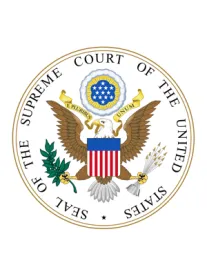A government employer can violate an employee’s constitutional rights by acting based on incorrect information that, if true, would violate the U.S. Constitution, even though the employee was not actually exercising his or her constitutional rights, the U.S. Supreme Court has held in a 6-2 decision. Heffernan v. City of Paterson, No. 14-1280 (Apr. 26, 2016).
The petitioner, Jeffrey Heffernan, was a detective working in the office of the Chief of Police in Paterson, New Jersey. The City maintained a policy prohibiting officers from “overt involvement” in political campaigns.
Heffernan’s direct Supervisor and the Chief of Police were both appointed by the mayor. The mayor was running for re-election against Heffernan’s friend, Lawrence Spagnola. Heffernan was not involved in Spagnola’s campaign; however, Heffernan’s bedridden mother asked Heffernan to get her a Spagnola yard sign. While Heffernan was picking up the sign, other members of the police department saw him speaking to the campaign staff while holding the yard sign. This information spread quickly through the department. The next day, Heffernan’s supervisors demoted him from detective to patrolman for his “overt involvement” in Spagnola’s campaign. In reality, Heffernan was not involved in the campaign at all.
Heffernan sued the City, claiming that the demotion violated his First Amendment rights. The District Court held that because Heffernan was not actually involved in activity protected by the First Amendment, he did not have a constitutional claim. The U.S. Court of Appeals for the Third Circuit affirmed.
In reversing the Third Circuit, the U.S. Supreme Court put aside consideration of the government employer’s policy and assumed that the activities Heffernan’s supervisorsthought he engaged in were constitutionally protected. The Court considered whether a government employer’s mistaken belief that an employee is engaged in a particular activity could allow an employee to state a claim for deprivation of a right that the employee was not actually exercising. The Court held that the government employer’s belief is relevant. A government employer’s actions, based on mistaken information, can result in a viable constitutional claim even where no actual constitutional violation occurred.
The Court relied on Waters v. Churchill, 511 U.S. 661 (1994), in which the Court addressed the reverse issue: A government employee that actually exercised his constitutional right where the government employer had a good faith belief that constitutional issues were not implicated. In Waters, the employer incorrectly believed that a government employee had spoken only on personal matter when, in reality, the employee had spoken on matters of public concern. The Court found that there was no violation of the First Amendment because the government employer reasonably believed the employee’s conversation involved only private matters. Because the Court found that the government employer’s intent mattered in Waters, the Court held that motive should be considered in this case. The majority also noted that an opposite holding could have a chilling effect on protected activity.
Significantly, the decision is based on the assumption that the policy the City implemented is unconstitutional. However, because there is evidence on the record suggesting the City demoted Heffernan pursuant to a neutral policy prohibiting police officers from overt involvement in any political campaign, the case was remanded for a determination on whether there was a neutral policy, whether the policy complies with constitutional standards, and whether Heffernan’s employers actually followed the policy.
Justice Clarence Thomas and Justice Samuel Alito dissented. They felt that there could be no claim for deprivation of a constitutional right where the employee was not exercising the constitutional right.
Government employers should review any policies relating to speech or political expression to ensure the policies are neutral, within constitutional limitations, and applied uniformly. Government employers also should be aware that the employer’s intent and motive matter and can actually create a constitutional claim where one might otherwise not exist.





 />i
/>i

